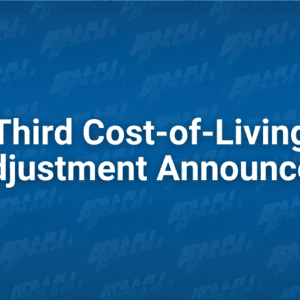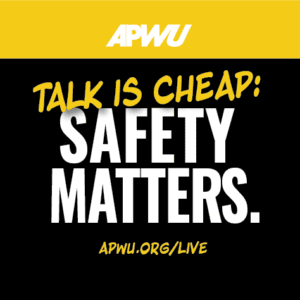November 17, 2020
Advancing Postal Banking in a New Political Landscape
(This article first appeared in the November/December 2020 issue of the American Postal Worker magazine)
A changing political landscape offers new opportunities for the Campaign for Postal Banking to advance an agenda for expanded postal financial services. Of course simply electing politicians who say they support us is only part of our struggle to secure and expand the public Postal Service. We must also hold them accountable to their commitments. In this case the Democratic National Convention adopted a platform that includes postal banking and other helpful considerations for the USPS.
In a section on ending poverty the platform noted the Campaign’s key analysis about the need to reform the country’s financial system saying “One in four American households are either unbanked or underbanked putting them at risk of losing money due to exorbitant fees or usurious interest rates.” The platform further committed to support “affordable transparent and trustworthy banking services that are language-accessible for lowand middle-income families,” including postal banking.
The platform noted the need to strengthen the Postal Service’s finances in a number of ways. It said: We will also support… exploring options to enable unbanked and underbanked Americans to access financial services through the Postal Service.
The Biden administration must be held accountable to these commitments. The new administration can advance these goals in two ways: First they must appoint pro-postal Governors to the Postal Service Board who support expanded services – including financial services. Second they must work with Congress to deliver emergency COVID-19 relief for the USPS and give the Postal Service the opportunity to grow its role in our communities.
Postal Banking on the Move in Congress
Thankfully in the final months of the 115th Congress lawmakers in both chambers showed they are prepared to advocate for postal banking. While none of the legislation was perfect or complete they indicate a growing interest on Capitol Hill to move toward a more robust postal financial system.
In March Senator Sherrod Brown (D-OH) introduced a bill that proposed a “Fed Accounts” digital wallet essentially a personal checking account housed at the Federal Reserve that could be accessed at post office locations around the country.
In September Senators Kirsten Gillibrand (D-NY) and Bernie Sanders (I-VT) re-introduced the Postal Banking Act which would establish low-fee savings and checking accounts at a postal bank. Their bill also included lowinterest loans that could be made available through the postal system. Their bill has yet to receive a vote.
In July in the House of Representatives Reps. Marcy Kaptur (D-OH-9) and Bill Pascrell (D-NJ-9) introduced an amendment to an appropriations bill that would fund and require the Postal Service to implement a postal banking pilot program testing many of the expanded financial services the Campaign has called for. Their amendment passed the House and will likely be a “political football” in December’s budget fight.
Finally in October Reps. Rashida Tlaib (D-MI-13) and Alexandria Ocasio-Cortez (D-NY-14) introduced legislation encouraging the formation of public banks at the state and local levels. These public banks could also interact with Fed Accounts postal banking and other similar initiatives. While none of these vehicles will become law before the new Congress is seated in January they indicate the type of the legislative action postal banking advocates could expect in the years to come.
Our role
The apparent support from lawmakers is only a product of our campaigning. Together we must continue our struggles to stave off postal privatization secure needed COVID-19 relief for the USPS and push postal management and leaders in Washington to reimagine a bolder role for the Postal Service. We know that systemic inequities in the country’s financial system won’t disappear with a new President and a new Congress. We must continue building our coalition to hold them accountable to their promises and build a brighter world where everyone has access to the low-cost financial services they need.
The Campaign for Postal Banking is a coalition of consumer worker financial reform economic justice community civic and faith-based organizations calling for low-cost consumer-driven financial services via the Postal Service. Products and services could include check cashing bill payment savings accounts and small-dollar loans. Postal Banking will benefit consumers without access to traditional banks as well as those who want a public option. The expansion of services would also strengthen our public Postal Service. To learn more visit www.CampaignforPostalBanking.org.
Sign up for News



